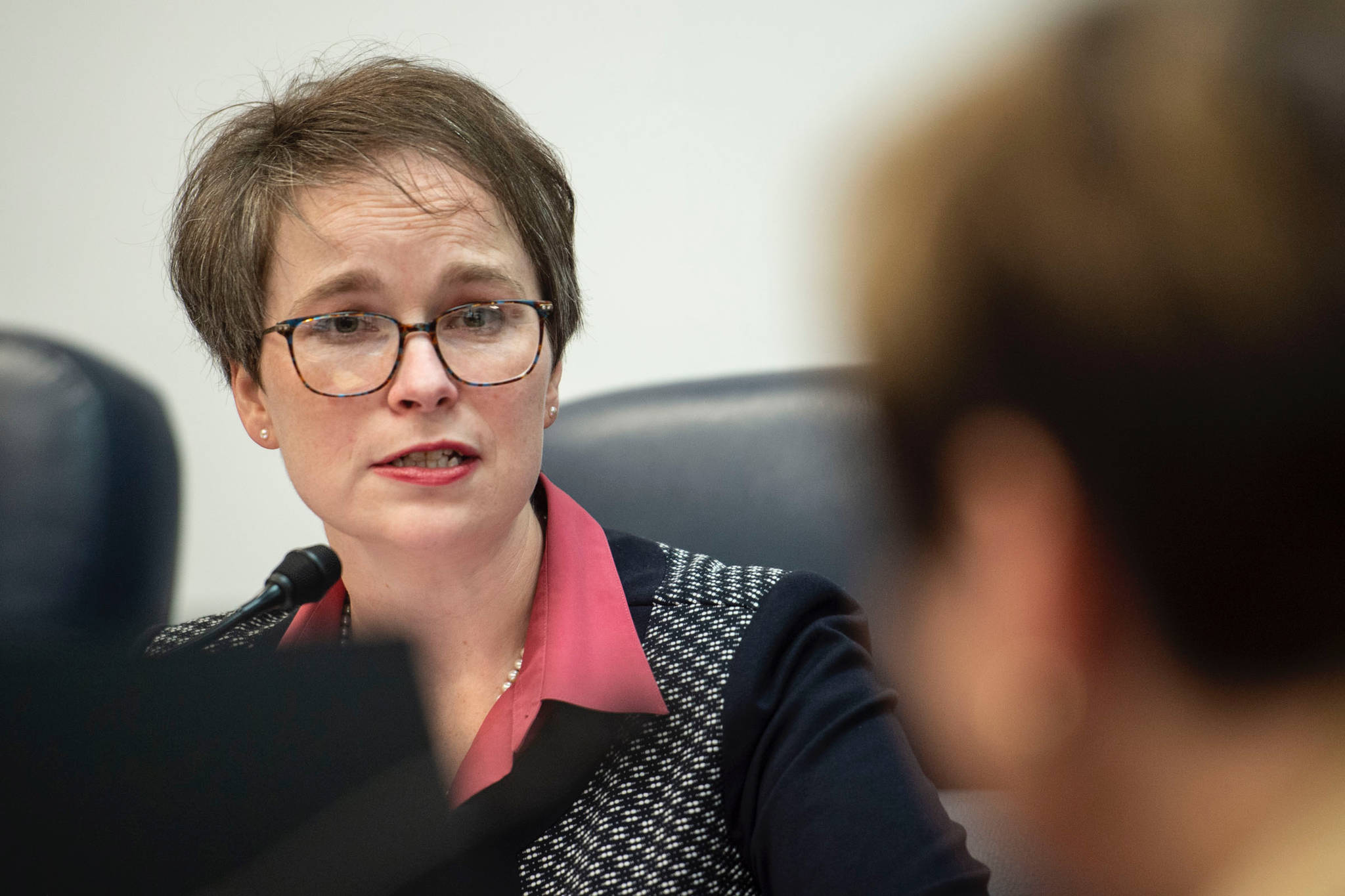After putting serious discussions off for the first 100 days of session, legislators are diving into Permanent Fund Dividend talks this week.
The House State Affairs Committee debated multiple proposals about the Permanent Fund and the dividend Thursday afternoon, including Gov. Mike Dunleavy’s proposed constitutional amendment. The amendment (House Joint Resolution 6), which Dunleavy introduced Feb. 20, would require any changes to the PFD formula to be approved by a statewide vote.
Thursday’s hearing was the first hearing in the committee for the bills and proposed amendments, and the committee will pick them up again next week. At a future hearing (or hearings), there will be an opportunity for public testimony. Dates for that will be set later.
Members of the committee also heard House Bill 132 from Rep. Adam Wool, D-Fairbanks, that would tie the PFD amount closer to the state’s oil and gas revenue. If the price or volume of oil production increases, the bill states, so does the dividend.
[Senate leaders optimistic Legislature will finish on time]
Rep. Sarah Vance, R-Homer, said she disagreed with the proposal, especially because the PFD was meant to try and offset the state’s reliance on volatile oil revenues, and this bill ties the dividend even more closely to oil prices. Wool said this bill helps ensure that the state won’t shell out large amounts of money in PFD payments if revenues are low.
Vance, who was cordial in her disagreement with Wool, posed a hypothetical question after hearing Wool’s explanation.
“Who do you represent,” Vance said, “the state or the people?”
Wool answered the question briefly, saying the people of Alaska and state government are “inextricably entwined” and that a good state government helps the people.
House Joint Resolution 18, proposed by Rep. Jonathan Kreiss-Tompkins, D-Sitka, seeks to combine the two funds in the Permanent Fund into one fund, and to protect it in the constitution. That proposal didn’t face many negative comments Thursday, as committee members on both sides of the aisle agreed with the general idea of protecting the Permanent Fund.
Both joint resolutions, because they’re amendments to the constitution, would require a two-thirds majority vote from the House and Senate.
In the other legislative body, the Senate Finance Committee is expected to start adding amendments to its budget proposal Friday morning, and Sen. Bert Stedman (co-chair of the committee) told media members Thursday that at least some of those amendments will be about the PFD.
During the committee’s meeting Thursday, Sen. Natasha von Imhof, R-Anchorage and co-chair of the committee, gave a brief preview of how passionate the discussions should be. She said she believes the statutory formula for the PFD is out of date and that the Legislature shouldn’t drain the state’s savings just to pay a large dividend now.
“By raiding the Permanent Fund,” von Imhof said, “and partaking extra draws on the earnings reserve account just so we can pay a full dividend — that statute was made 30 years ago, 40 years ago, that’s not applicable today — is fiscal insanity and irrational and irresponsible.”
• Contact reporter Alex McCarthy at amccarthy@juneauempire.com. Follow him on Twitter at @akmccarthy.

